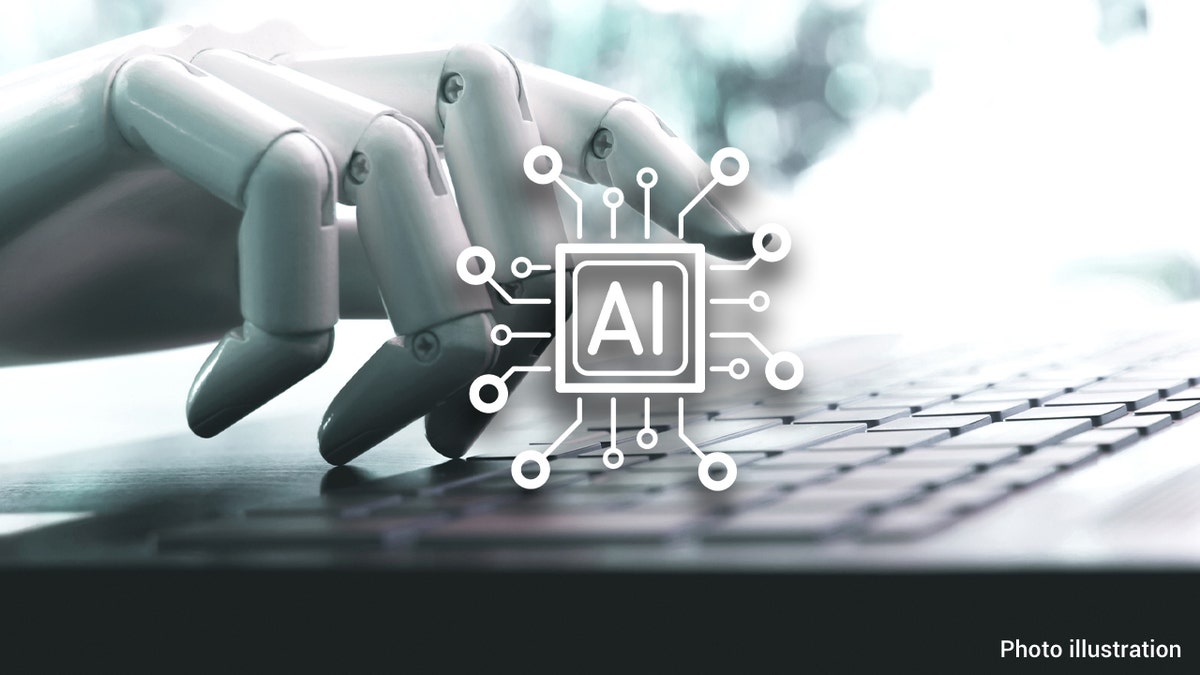Teachers can either ignore AI or embrace it: Carl Szabo
George Mason University professor Carl Szabo joins ‘Fox & Friends Weekend’ to discuss artificial intelligence and its impact on higher education.
Artificial Intelligence (AI) is changing the world as we know it. OpenAI’s ChatGPT became the fastest-growing consumer application in history, after reaching 100 million monthly active users just two months after its launch, according to a UBS study in January 2023.
In higher education, the rise of AI text generators and chatbots is driving faculty and administrators to rethink their institutions’ curriculum and policies.
ChatGPT has raised concerns of increased opportunities for cheating and plagiarism, as well as inhibiting students’ learning. A BestColleges survey found that 51% of college students agree that using AI tools on schoolwork constitutes cheating or plagiarism. However, one in five students use them anyway.

AI can enhance students’ thinking, problem-solving and other skills that will help them in the workplace. (iStock)
AI isn’t going anywhere, and it’s up to students to determine its role within their studies. Here are three ways parents can help their students navigate the use of AI.
WHAT IS ARTIFICIAL INTELLIGENCE (AI)?
First, encourage your student to seek ways to use AI to support and improve their learning, rather than as a shortcut or means of doing less work.
Educators across the country have raised concerns that AI tools will hinder students’ ability to develop critical thinking, researching, writing and communication skills, reducing their employability.
However, when used properly, AI can enhance students’ thinking, problem-solving and other skills that will make them stand out in the workplace. In addition, many employers are already seeking candidates who know how to use AI to enhance their productivity.
At Southeastern University (SEU), where I serve as president, we introduced a course on ChatGPT to ensure that our students are learning how to use AI text generators effectively and responsibly.
AI CAN BENEFIT STUDENTS AND PARENTS IF DONE RIGHT
Within the class, students learn the basics of prompt engineering — structuring prompts in a way that AI can understand — to help generate clearer and more helpful results. By doing so, students are practicing critical thinking skills by questioning their own thought processes and thinking through the steps needed to execute specific actions.
The ultimate goal is for students to use this ability to further engage with their other courses and deepen their understanding of what they are learning.
Encourage your student to use AI to help them brainstorm ideas, organize their notes or create study guides for their courses. With the right encouragement and direction, ChatGPT can be used to help students engage with their course material and improve their critical thinking, not detract from it.
Second, encourage your student to use AI responsibly.
To ensure academic integrity and that your student is getting the most out of their courses, they need to first find out from their professors when, or if, the use of AI is permitted.
AI BELONGS IN SCHOOLS. HERE'S HOW I PLAN TO USE IT TO HELP, NOT HURT MY STUDENTS
At SEU, we have added a generative AI assistance policy that requires students to first confirm with their professor if ChatGPT and similar tools are acceptable to use while completing projects.
However, we have established that AI tools should not be used during in-class examinations or assignments, unless explicitly instructed by the professor. When it comes to projects outside of class, we are trusting our faculty to decide its usefulness.
We also realize that there may be some instances where AI tools need to be strictly prohibited, especially when it relates to licensure and certification exams. In those cases, restrictions are clearly outlined within the course’s syllabus.
Encourage your student to review their university’s overall AI policies and to read over each instructor’s syllabus with their specific course’s guidelines. Encourage them to talk with their professors directly, ask questions, and get feedback and advice on how to use AI responsibly in their classroom.
CLICK HERE FOR MORE FOX NEWS OPINION
Doing so will help your student be confident they are being above board and know that they are in line with their professors’ guidelines for the coming semester.
Third, encourage your student to always cite ChatGPT or other chatbots. Just as they would credit an author or publication in their assignments and essays to avoid plagiarizing, it’s important they do the same for AI tools.
When citing ChatGPT or other AI, your student should save the transcript of their chat and include it with their project for the instructor’s or grader’s reference. They should also describe the prompts that generated the responses, as well as include the date they accessed the AI tool. Even if students are simply using AI tools to get inspiration and generate ideas, it’s important they still give credit to the resource they used.
CLICK HERE TO GET THE FOX NEWS APP
Many professors use Turnitin or other services to detect plagiarism, and although it’s still fairly new technology, it is learning to detect AI usage. By crediting their AI sources, students will help ensure that they will not be penalized for plagiarism or for their usage of AI. It will also help them to practice staying accountable and responsible in how they use these new tools.
Remember that AI is a tool, similar to software like spellcheck or Grammarly. It can be used to help your student enhance their learning, improve their critical thinking and engage with course material in new ways. By encouraging them to follow their university’s guidelines and professor’s instruction, AI tools can enhance your student’s education while also allowing them to maintain academic integrity.















































